WHY ECI
Cost of Doing Business
Cost of Doing Business in East Central Indiana
Indiana ranks
6th
for Best State
for Business
by Chief Executive 2023
Indiana ranks
9th
for State Business
Tax Climate
by the Tax Foundation 2022
Indiana maintains a
AAA
credit rating
by S&P
A Right-to-Work State
On February 1, 2012 Indiana became the 23rd state in the nation and the first state in the Midwest to pass right-to-work legislation.
Corporate Income Tax Reduction
Indiana’s corporate income tax rate is 4.9%.
Single Sales Factor
Indiana is a single-factor apportionment state. For corporations with income from within and outside Indiana, corporate income tax is based solely on Indiana sales.
Personal Income Tax
Indiana’s personal income tax rate is 3.23%.
Inventory Tax
There is no inventory tax in the state of Indiana.
Sales Tax
Indiana’s sales tax is calculated at a rate of 7 percent.
Sales Tax Exemption
The state of Indiana allows sales tax exemptions for the following:
Manufacturing
The following are exempt from the sales tax: raw materials, equipment, and utilities. Wholesale sales, items used directly in production, and sales made in interstate commerce are exempt. To the extent that computer hardware will be used directly in the production of another product, its purchase is exempt from tax pursuant to the manufacturing exemption. To claim the exemption, the purchaser must show that the computer has an immediate effect on the article being produced as the result of being an essential and integral part of the production process. With respect to computers, this is known as computer-assisted manufacturing (CAM).
Logistics
For companies engaged in public transportation, the following qualifies for sales tax exemption: vehicles used to escort vehicles used in public transportation; items used to disassemble, load and secure the customer’s machinery for movement in public transportation; items used in planning transportation routes and obtaining travel permits.
Material Handling Equipment
Material handling equipment purchased for the purpose of transporting materials for use in the direct production, extraction, harvesting, or processing of agricultural commodities is exempt from sales tax.
The exemption for research and development equipment applies only to equipment purchased for the purpose of research and development activities. Research and development activities include any activities devoted directly to experimental or laboratory research and development for new products, new uses of existing products, or improving or testing existing products.
Certain income derived from qualified patents and earned by a taxpayer are exempt from taxation. The Tax Exemption for Patent-derived Income defines qualified patents to include only utility patents and plant patents. The total amount of exemptions claimed by a taxpayer in a taxable year may not exceed $5 million.
Software as a Service (Saas)
Effective July 1, 2018, transactions that result in an end user purchasing, renting, leasing or licensing the right to remotely access prewritten computer software over the Internet, over private or public networks or through wireless media – transactions commonly referred to as Software as a Service (Saas), or cloud computing are exempt from sales and use tax.
The Data Center Gross Retail and Use Tax Exemption provides a sales and use tax exemption on purchases of qualifying data center equipment and energy to operators of a qualified data center for a period not to exceed 25 years for data center investments of less than $750 million. If the investment exceeds $750 million, the IEDC may award an exemption for up to 50 years. To qualify for the exemptions, data centers must reach a certain threshold for investment within 5 years of receiving an exemption certificate from the Department of Revenue. The minimum investment required is determined by the population of the county in which the qualified data center is located.
Worker’s Compensation Rates
Indiana’s rate of $1.05 is the second lowest workers’ compensation rate in the US.
Unemployment Insurance
Indiana Department of Workforce Development (DWD) manages unemployment insurance and quarterly wage reports.
Local Taxes
Local Income Tax
Local income tax varies by county within the region and is a combination of county adjusted gross income taxes (CAGIT), county economic development income taxes (CEDIT), and county option income taxes (COIT).
Click here to view income tax rates for individual counties.
Property Tax
Real and personal property tax is assessed at 100 percent of market value. Tax rates and exemptions vary among local jurisdictions but are capped at 3 percent for business property pursuant to state law.
Click here to view property tax rates for individual counties.
Resources
Indiana Department of Revenue (DOR) has been serving Indiana and its diverse population and business community since 1947. DOR’s more than 700 dedicated team members administer over 60 different tax types and annually process more than $19 billion of tax revenue including:
Processing millions of tax returns
Handling pieces of correspondence and phone calls for hundreds of thousands of Hoosiers
Completing thousands of diverse audits
Addressing tax protest and legal issues
Working in-person with individuals, business owners, tax preparers and a variety of stakeholders
